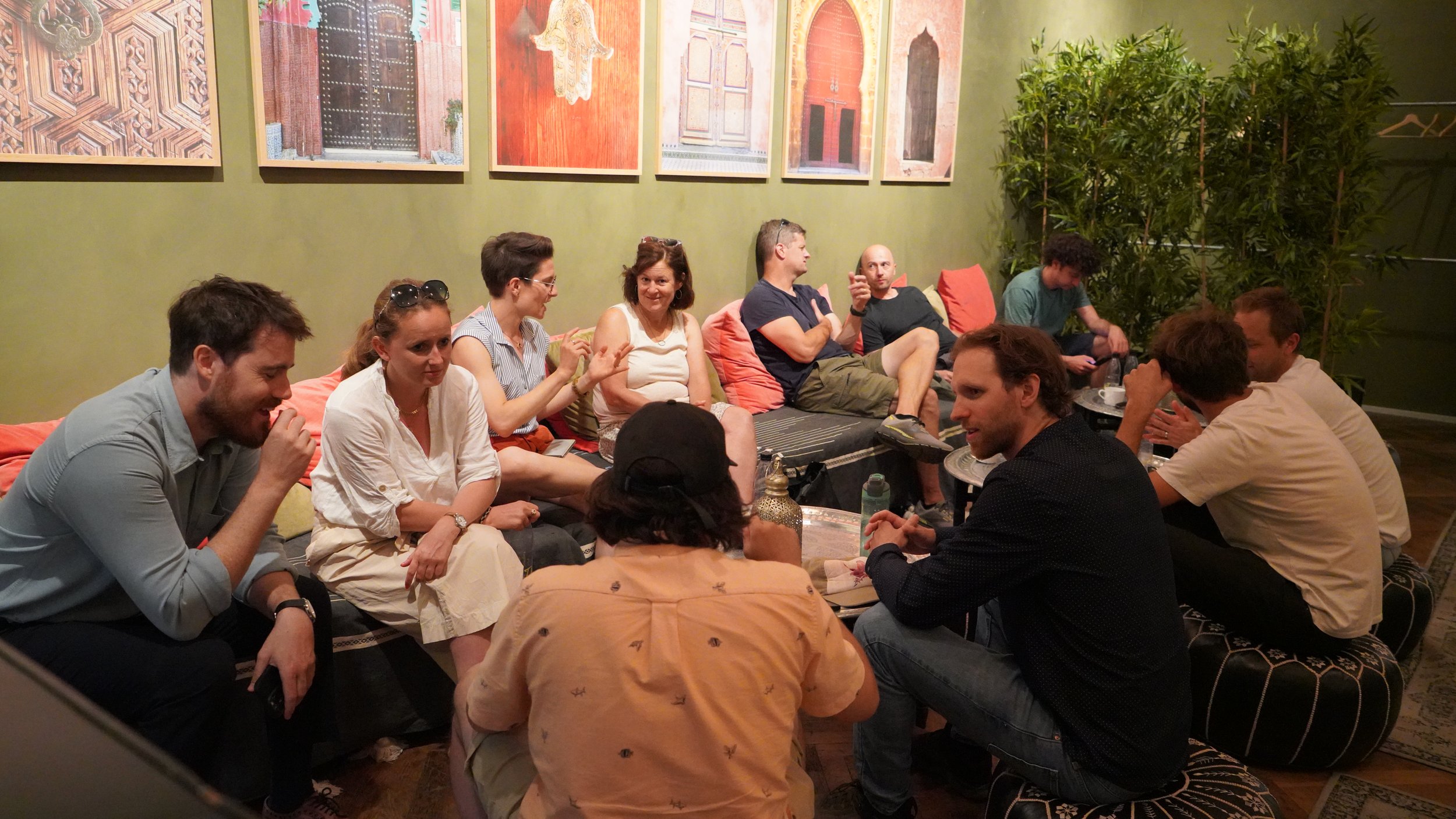Knowledge sharing through immersion: the importance of continued learning and in person master classes
Stop at Bryggebroen bridge in Copenhagen during a bike tour.
If seeing is believing, then riding is transforming. There’s no better way to demonstrate the advantages of quality cycling infrastructure and services than to be immersed in them. Hearing about Copenhagen’s green wave in the media or seeing a webinar about it may spike curiosity, but it's only by cycling into the city center or one of the regional super cycle highway routes and hitting green light after green light does one truly understand the impact.
Taking participants out of their comfort zones and experiencing first-hand what they are learning accelerates comprehension and increases knowledge retention leading to lasting outcomes afterwards. This is exactly what we at Copenhagenize do during our 3-day master classes for bicycle urbanism professionals and advocates. Our master classes immerse participants in new environments and ways of thinking that disconnect them from their day-to-day lives, opening their minds to new approaches to city building and mobility they would have never considered before.
Learning infrastructure design principles in the Paris rooftop classroom before applying lessons learned to real life projects from participants.
In an era of online courses and limiting our carbon footprint for travel, in person learning is still relevant, but must go beyond a traditional classroom setting to be worthwhile. Through experiential learning, participants gain a deeper understanding of the urgency for transforming mobility in our cities. Seeing how other cities are different, living like the locals, connecting with the cycling and planning ecosystem, and meeting like-minded practitioners all enhance learning and prepare each participant to be an advocate when they return home. Though more resources and time are required upfront, time is saved in the long term. In one afternoon of riding the streets of Paris, participants see how the cycling infrastructure has evolved and feel first-hand how this progress has improved the cycling experience for users. A few hours to understand the importance of building safe quality infrastructure to encourage more cycling, rather than taking months to test mediocre or scaled back solutions we already know don’t work.
Immersive learning also builds connections and encourages sharing. Every participant comes with their own perspectives, lived and professional experiences that can contribute to the value of the class. Their interpretation of what we’re seeing and ideas on how to implement it back home, all contribute to enriching discussions and debate. Witnessing the overflow of cargo bikes at school drop-off in Copenhagen may seem intimidating and unattainable, but discovering from another participant that suburban communities across the United States have started to organize “bike bus” rides for kids to safely cycle to school might be the inspirational first step for another participant in their city.
Participants from six different countries discussing perspectives on what we’ve learned in the course during our break.
A new era has begun in the world of bicycle urbanism and mobility. There is high level acceptance and a realization that our climate and sustainable development goals can not be met without more active and public transportation solutions. However, the implementation on the ground and variance from city to city, and country to country is another story. Serious progress is being made, but unlearning our car-centric urban planning and traffic management ways and prioritizing cycling mobility requires deliberate efforts to evolve and change our way of thinking. Immersive and experiential learning are key to achieving this.
Learn more about Copenhagenize’s 2025 master classes in Copenhagen here and Paris here.



